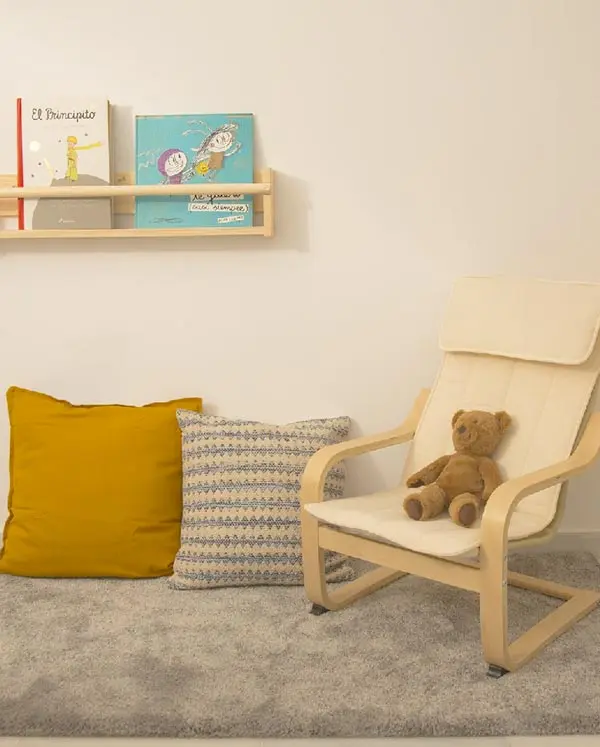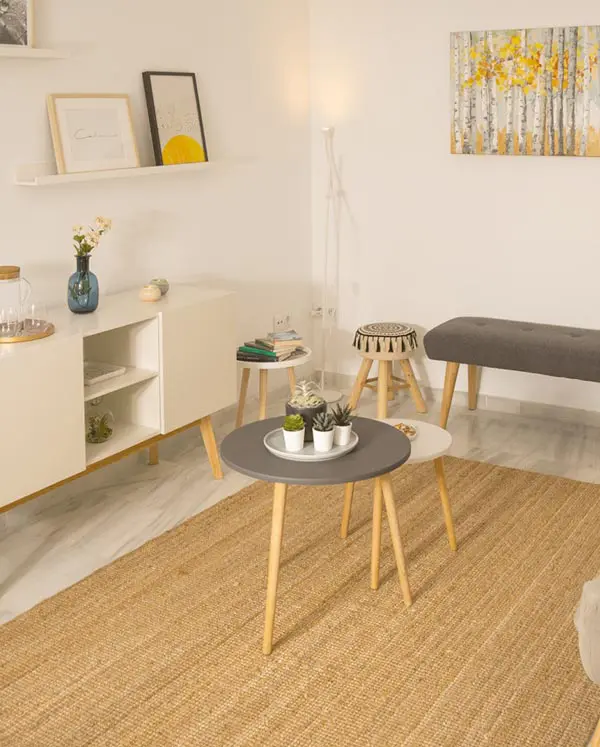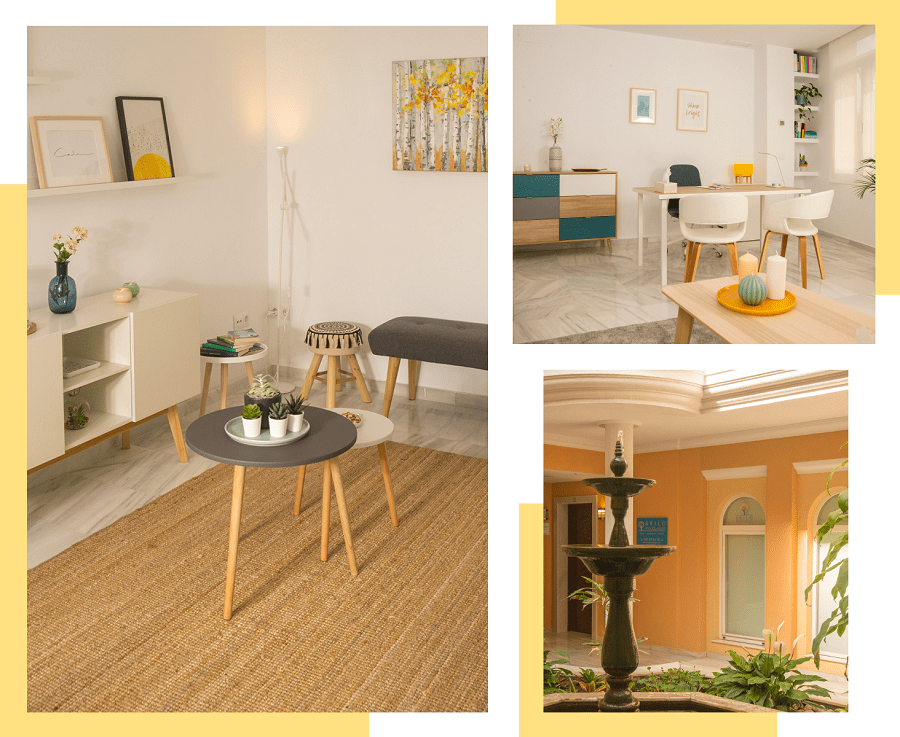Psicología Contextual en Benalmádena
«We are what we think, what we feel, what we do in relation to a situation»
The contextual approach to psychology integrates the techniques that have been demonstrated by the greatest empirical evidence in recent decades, through the application of Third Generation Therapies where the principles of cognitive and behavioural therapies are redirected to the emphasis of experience in the context where language plays a very important role. The person is understood as the constant interaction of their whole (thoughts, feelings, emotions, physiology and behaviours) within their present surroundings and past history.
An interesting point of the contextual psychology approach is that, although part of the paradigm of congnitive-behavioural therapies, it goes beyond symptoms by making an integrative and scientific approach with flexible strategies to address people’s problems in their uniqueness – without dismissing the contribution of other psychological approaches.
Third Generation Therapies consider that discomfort is not caused by the events that occur to us, but by the way we link emotions to these events; therefore, emotional well-being does not depend on the absence or avoidance of pain, but on the way we manage it. If there is acceptance there is no experiential avoidance, therefore one can work on emotions in the present without anchoring to the past or fear of the future. Thus, in the “here and now”, one can work on events of the present, of their history and have future objectives while still fully living in the present

Below we describe some of the Techniques that we apply at Brilo Psychologists: Third Generation Cognitive Behavioural Therapy, Acceptance and Engagement Therapy, Dialectic Behavioural Therapy, Functional Analytical Psychotherapy, Mindfulness Based Cognitive Therapy, Behavioural Activation Therapy, EMDR, Integral Partner Therapy and Positive Psychology. These techniques are adapted to the age and particularities of each person; for example, for child therapy these techniques are applied through play, always respecting the rhythms of neurological, emotional and attachment development.
Third Generation Cognitive Behavioural Therapy

Third Generation Cognitive Behavioural Therapy
Cognitive Behavioural Therapy (CBT) can help us understand and change the way we think “our cognitions” and how we act “our behaviours” and these changes can help us reach our emotional goals, through various techniques such as emotional identification, cognitive restructuring and changing the way we act or react to various life situations that cause us discomfort.
The third generation of CBT focuses on the search for a broader, more flexible and more effective behavioural repertoire, considering:
· A contextual approach
· Unique emphasis on behavioural functionality analysis.
· Flexibility as a criteria for adapting to problems.
· The therapeutic relationship is used as a tool for change.
Acceptance and Commitment Therapy (ACT)

Aims to understand that suffering is part of life and that happiness does not necessarily mean the absence of suffering. Its emphasis is on taking effective action guided by our deepest values to which we can commit. Techniques such as paradoxes, experiential exercises, metaphors and values work are used.
Acceptance is not resignation, it is recognising the reality of our present and instead of denying or repressing emotions, giving them a natural flow without resistance. After a functional analysis of the discomfort and our own experiences committing to ourselves to take valuable actions for change, therefore the client's own experience is the key to treatment.
Dialectical Behavioural Therapy (DBT)
DBT combines cognitive behavioural and contextual techniques to gain emotional self-regulation, it focuses on validating the person's feelings and from that point understanding which may be disadapted in order to seek alternative actions or behaviours that are more beneficial. In this way, one learns to regulate mood-dependent extreme emotionality, which usually occurs on three axis: from emotional vulnerability to self-invalidation, from active passivity to apparent competence, and from relentless crisis to grief blocking.
It is highly effective for mood disorders as well as Borderline Personality Disorder.
Functional Analytic Psychotherapy (FAP)
The therapeutic relationship as part of the Analysis of Clinical Behaviour has great relevance in FAP, since the events with clinical relevance that occur during the sessions such as thoughts, perceptions, feelings and reactions can be worked with at that moment.
In this way, an environment is created that favours the appearance of the behaviours to be worked on and through the analytical-functional panorama, the client interprets the causes of his/her reactions as he/she experiences them. This can lead to improvements in behaviour within sessions, which are reflected and reinforced by the therapist.
Mindfulness
Mindfulness-based Cognitive Therapy refers to mindfulness of events in the present. Usually much of our experience is displaced by intrusive thoughts about the past or future. It involves observing the present carefully and accepting the experience as it comes with both its positive and negative nuances without striving to avoid the unpleasant. In this way, the person learns to relate to everything that is happening in their life in the present moment, becoming aware of their reality and consciously working on their life events.
Aspects such as: Focusing on the present moment (feeling things as they happen without trying to exert control over them) Radical acceptance (not making value judgements about events) Choice of experiences (choosing which objectives and experiences to get involved in).
EMDR
This method addresses the effects of traumatic life experiences through bilateral neuronal stimulation techniques such as eye movements, sounds, touches, among others, in order to reprocess the emotional charge of the trauma.
Its theoretical basis is based on neurological studies on the REM (Rapid Eye Movement) phase of sleep, where we observe the process and consolidate emotional information with the eye movement that occurs during sleep. During this phase of sleep we organise memories, emotions and experiences, including traumatic events. On the other hand, some studies suggest that traumatic events can alter neuronal biochemistry and interrupt the brain's natural process of processing a negative experience and this technique can help to re-signify the trauma.
Couples Therapy
We use acceptance strategies providing opportunities address problems to improve closeness and intimacy. Acceptance means giving up the struggle to change the other, understanding that mutual differences can be bearable and giving up the desire to mould the partner to an idealised image.
Three main strategies are used: "empathic bonding" where we can express our pain without judgement towards the other by contextualising the problem. "Unified separation" is oriented towards seeing problems from a problem-solving perspective. This favours descriptive and dispassionate dialogues talking about the problem as something external however both have to see the problem together. Thirdly, "tolerance" is used when some aspect of the partner is not accepted, therefore tolerance facilitates the relationship and leads to acceptance.
Positive Psychology
The techniques developed in positive psychology complement existing techniques in order to increase therapeutic success. There is often a tendency to emphasise symptoms and weaknesses, putting aside the strengths we have as people. Developing areas such as courage, perseverance, creativity, curiosity, resourcefulness, kindness, justice, leadership, love, gratitude, forgiveness, self-control, sense of humour etc., all of which have a great impact on emotional wellbeing and problem solving.
This approach allows for a much broader study of the human mind, as it has before tended to focus on the pathological, putting aside the vast possibilities that the development of human strengths provides.
Behavioural Activation Therapy (BAT)
This technique is very useful in the treatment of depression as it prioritises external actions or factors over internal factors such as cognitions. Meaningful life experiences are programmed during therapy, with the understanding that these actions will generate positive emotions. On the contrary, if you wait for a positive emotion to come, to act, to go out, to share with people, that day may take a long time to arrive. But if you start doing stimulating actions even if you don't have many desires, little by little through behavioural activation, the strengths and pleasing sensations will come.
Common Reasons for Consultation
Anxiety problems (fears, phobias, stress, nightmares, night terrors),
depression, low self-esteem, vital dissatisfaction, work stress, lack of confidence in yourself, lack of impulse control, partner problems, family problems, emotional dependency, addictive behaviors, lack of objectives, developing personal skills, behavior problems (impulsivity, aggressiveness, social skills deficit, attention-deficit/hyperactivity disorder (ADHD)), behavioral problems (impulsivity, aggressiveness, social skills deficit), academic difficulties, academic difficulties, managing higher skills, sadness, apathy, insecurity, low self-esteem, food problems, managing higher skills, psychological assessments, and reporting.
BRILO Psychologists
Facilities
Ambience is very important as it facilitates interaction and relaxation in therapeutic sessions. We have spaces adapted for different ages and different types of sessions, as well as access and toilets for people with reduced mobility.
We want you to feel free, confident, calm and safe from the moment you enter our Centre enabling you to take these feelings with you when you leave.




At BRILO Psychologists
we care.
Our team of collegiate professionals with more than 10 years of experience will treat you with empathy, understanding and without judgment. We offer therapy sessions that will improve your quality of life, giving you the tools to make you personally grow and feel better about yourself.
In our centre in Benalmadena we have created a comfortable and relaxing atmosphere, with flexible schedules tailored to you. Come and meet us.
Our team of collegiate professionals with more than 10 years of experience will treat you with empathy, understanding and without judgment. We offer therapy sessions that will improve your quality of life, giving you the tools to make you personally grow and feel better about yourself.
In our centre in Benalmadena we have created a comfortable and relaxing atmosphere, with flexible schedules tailored to you. Come and meet us.

 627 27 65 22
627 27 65 22

